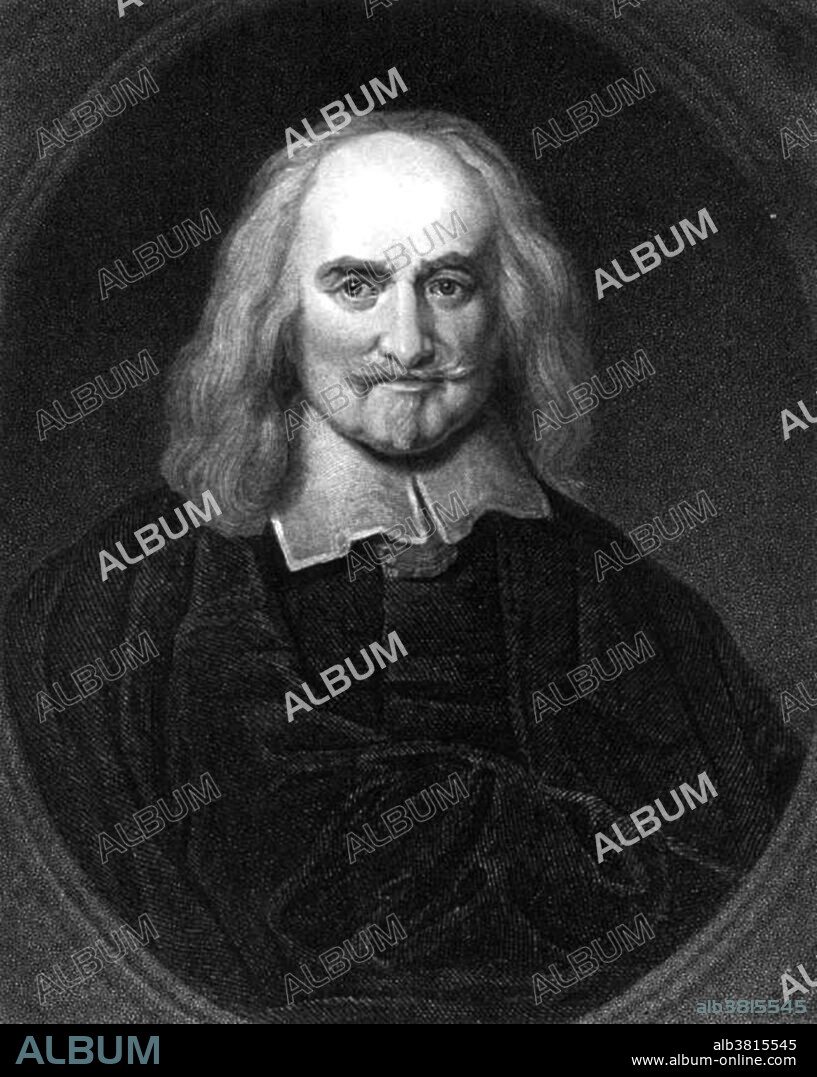alb3815545
Thomas Hobbes, English Philosopher

|
Zu einem anderen Lightbox hinzufügen |
|
Zu einem anderen Lightbox hinzufügen |



Haben Sie bereits ein Konto? Anmelden
Sie haben kein Konto? Registrieren
Dieses Bild kaufen.
Nutzung auswählen:

Titel:
Thomas Hobbes, English Philosopher
Untertitel:
Siehe automatische Übersetzung
Thomas Hobbes of Malmesbury (April 5, 1588 - December 4, 1679) was an English philosopher. He developed some of the fundamentals of European liberal thought: the right of the individual; the natural equality of all men; and the view that all legitimate political power must be representative and based on the consent of the people. He was one of the founders of modern political philosophy. His 1651 book Leviathan established the foundation for most of Western political philosophy from the perspective of social contract theory. From the time of the Restoration he acquired a new prominence. Hobbism became a byword for all that respectable society ought to denounce. In addition to political philosophy, he also contributed to a diverse array of other fields, including history, geometry, the physics of gases, theology, ethics, and general philosophy. In 1679 he suffered a bladder disorder, which was followed by a paralytic stroke from which he died at the age of 91. He is said to have uttered the last words "A great leap in the dark" in his final moments of life.
Persönlichkeiten:
Bildnachweis:
Album / Science Source / Smithsonian Institution Libraries
Freigaben (Releases):
Model: Nein - Eigentum: Nein
Rechtefragen?
Rechtefragen?
Bildgröße:
3300 x 4138 px | 39.1 MB
Druckgröße:
27.9 x 35.0 cm | 11.0 x 13.8 in (300 dpi)
Schlüsselwörter:
BERÜHMT • BERÜHMTE PERSÖNLICHKEIT • EUROPAEER (F M) • EUROPAEER • EUROPÄER (F M) • EUROPÄER • EUROPÄISCH • HOBBS • ILLUSTRATION • ILLUSTRATIONS • MANN • MATERIALISMUS • NOTABEL • PERSON • PERSöNLICHKEITEN • PERSÖNLICHKEITEN • PORTRAIT • PROMINENZ
 Pinterest
Pinterest Twitter
Twitter Facebook
Facebook Link kopieren
Link kopieren Email
Email
